News
-
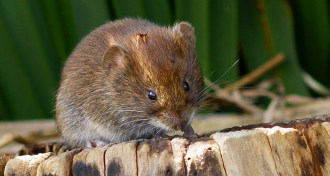 Genetics
GeneticsBank voles provide clue to prion disease susceptibility
A protein from bank voles makes mice susceptible to disorders that wouldn’t otherwise infect them.
-
 Planetary Science
Planetary ScienceSubsurface sea hides below ice of Saturn moon
Astronomers add to evidence for a subsurface ocean on Enceladus using subtle variations in the moon’s gravity.
-
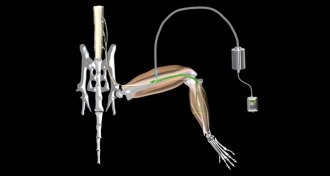 Neuroscience
NeuroscienceParalyzed mouse legs move with burst of light
Neural patch makes leg muscles twitch in paralyzed mice when blue light shines.
-
 Anthropology
AnthropologyBronze Age herders spread farming around Asia
Ancient seeds indicate that Central Asian animal raisers had an unappreciated impact on early agriculture.
By Bruce Bower -
 Genetics
GeneticsNeandertal legacy written in Europeans’ fat metabolism
DNA inherited from Neandertal interbreeding may have helped people adjust to Europe’s environment.
By Meghan Rosen -
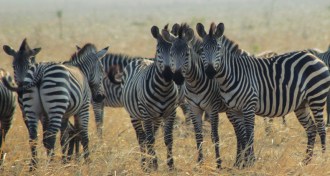 Animals
AnimalsZebra stripes may be mainly defense against flies
The function of zebra stripes may not be for camouflage or cooling, a new analysis finds.
By Susan Milius -
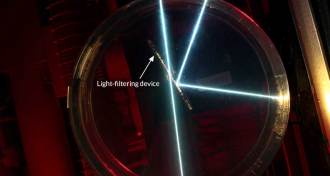 Materials Science
Materials ScienceLight filter lets rays through from only one direction
Angle-sensitive light filter could improve photography, telescopes and solar energy harvesting.
By Andrew Grant -
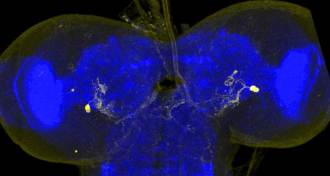 Neuroscience
NeuroscienceTen thousand neurons linked to behaviors in fly
By studying the wiggles of 37,780 fly larvae, scientists link specific neurons to 29 distinct behaviors.
-
 Humans
HumansChildhood program improves health 30 years later
A preschool intervention for kids from poor families benefits their health as adults, especially among men.
By Bruce Bower -
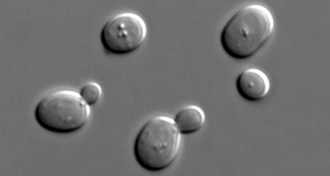 Life
LifeFirst chromosome made synthetically from yeast
Work with yeast marks the first time scientists have synthesized a chromosome from organisms with complex cells and represents a major step toward lab-created eukaryotic life.
-
 Planetary Science
Planetary ScienceIcy rings found around tiny space rock
Astronomers discover an icy ring around the planetoid Chariklo, held in place by unseen moons.
-
 Neuroscience
NeuroscienceScans suggest how the mind solves ethical dilemmas
Brain scans suggest how the mind solves a moral dilemma.